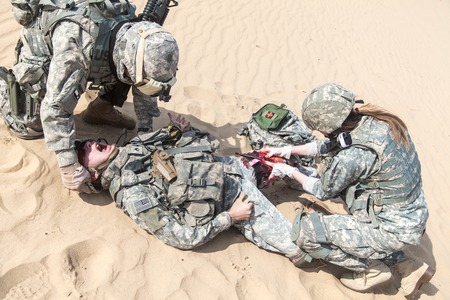Biostasis might just save soldiers from dying in battlefields

INQUIRER.net stock photo
When a soldier is injured in the battlefield, combat medics only have a short amount of time in their hands — sixty minutes at most, sometimes much less — to ensure the fallen soldier’s survival. This small window of time is called the “golden hour” by the United States Department of Defense and much attention is given it, with the military investing heavily in the moving and transfer of casualties from the field and back to safety.
The Defense Advanced Research Projects Agency (DARPA) under the defense department created the Biostasis program to make this golden hour much longer, a race against time itself, not just to improve logistics and battlefield care, but also to assist combat medics in treating traumatic injuries.
Biostasis is the ability of an organism to tolerate environmental changes without having to actively adapt to them. Animals like wood frogs are capable of a similar process called “cryptobiosis” to survive in freezing conditions.
“At the molecular level, life is a set of continuous biochemical reactions, and a defining characteristic of these reactions is that they need a catalyst to occur at all,” wrote Tristan McClure-Begley, Biostasis program manager, in DARPA’s website last March 1.
The Biostasis program aims to pursue numerous approaches in slowing down biochemical processes in living cells, according to McClure-Begley, starting from simple biological treatment like antibodies to holistic treatments applicable to whole cells and tissues.
If successful, the entire biological system may be slowed down across all measurable biological functions and with minimal damage to the cellular processes. In DARPA’s case, they are looking into controlling cellular energetics at the protein level, as proteins are the workers of cellular functions.
“Nature is a source of inspiration,” McClure-Begley added. “If we can figure out the best ways to bolster other biological systems and make them less likely to enter a runaway downward spiral after being damaged, then we will have made a significant addition to the biology toolbox.” JB
RELATED STORIES:
Stress debriefing boosted for soldiers vs Abu Sayyaf
How to save a life while under fire in Afghanistan